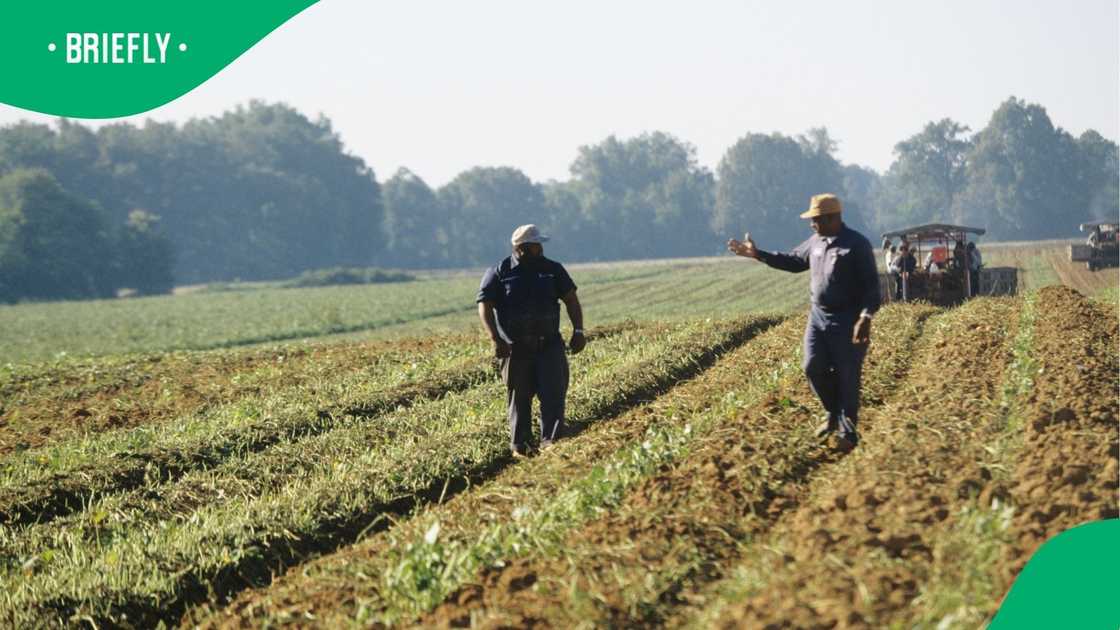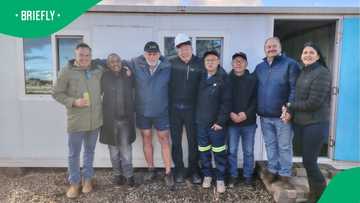How to Use Land Reform Programme to Drive Job Creation and Economic Inclusion
Peter Setou is the Chief Executive Officer of Vumelana Advisory Fund a non-profit organisation that was established in 2012 to help communities in the land reform programme to put their land to productive use through its Community Private Partnership (CPP) model.
Thirty-one years since the dawn of democracy, public discourse has been characterised by heated discussions on the land question, while scant attention has been paid to the support that successful land claimants require to ensure the long-term economic viability of their newly acquired assets.
When South Africans of all walks of life commemorated Freedom Day on 27 April and took time to reflect on the gains achieved and sustained since the dawn of the new political dispensation, there was general agreement that the unresolved issue of land dispossession remains a challenge for our political and social landscape and that it continues to render any celebration of political freedom hollow for many communities who continue to remain landless due to past injustices and forced removals.

Source: Getty Images
Undoubtedly, the resolution of the land question is not only morally and politically right, but it is also an economic imperative in a country that has gained the reputation of being ranked the most unequal society in the world by the World Bank. A staggering 41,9% of our population swell the ranks of the unemployed in the fourth quarter of 2024, according to StatsSA’s expanded definition of unemployment, which includes those discouraged from seeking work.
The increasingly uncertain geopolitical developments, the looming spectre of US-initiated debilitating trade wars, soaring tariffs and the possible termination of the African Growth and Opportunity Act (AGOA) which grants African nations duty-free access to the lucrative US market, adds credence not only for an accelerated land reform programme, but the deliberate enablement of rural economies and the empowerment of beneficiary communities to enable them to make their land productive to ensure that they can effectively participate in commercial agriculture, eco-tourism and other broader economic areas within the land value chain.

Read also
South Africa secures $1.5 billion infrastructure loan from World Bank, SA worried it will be stolen
PAY ATTENTION: stay informed and follow us on Google News!
The potential of land ownership to slam the brakes on the scourge of unemployment and deepening levels of poverty has been acknowledged by the National Development Plan (NDP), which envisaged agriculture as the sector that has the potential to create close to 1 million new jobs by 2030. The attainment of this ambitious plan hinges on the implementation of tailored, post-settlement support programmes that can attract much-needed investment and on fostering skills transfer and development and ensuring financial sustainability of the land.
Whilst there has been criticism levelled at the pace of land reform, the pockets of achievement and progress made thus far prove that a successful land reform programme can be a catalyst for job creation and skills development.
As an organisation that has worked at the coalface of the land reform programme for nearly 15 years, Vumelana Advisory Fund has changed the narrative of the land reform programme by helping claimant communities who acquire land under the land reform programme to successfully develop their land through partnerships with the aim to create jobs, boost incomes, develop communities and enable the transfer of skills.
By helping these communities to raise capital to develop the land, transferring skills to help them to effectively manage the business, we have enabled beneficiary communities to bring the transferred land into effective economic use.

Source: Getty Images
Proof points of reform and job creation
Since our inception, we have supported 26 land reform projects, leveraging our transaction advisory support programme and capacity building and institutional support programme. The programme provides the beneficiary communities with access to required resources while negating the need to give up ownership of the land or wait for government grants.
The transaction advisory support programme facilitates commercially viable, mutually beneficial partnerships between land reform beneficiary communities and private investors that create jobs, generate income and transfer skills.
These successful land reform programmes such as the 151 hectares Moletele-Matuma farm in Limpopo, Barokologadi-ERP Melorane Game Reserve partnership in North West and the Mkambati Nature Reserve Tourism partnership are examples of success stories resulting from our interventions, where we have collectively managed to create over 2 500 jobs that benefitted over 16 000 households, mobilised over R1 billion in investments and developed approximately 76 000 hectares of land.

Read also
Moeletsi Mbeki sparks backlash with land reform comments, says colonisers help feed the nation
A successful land reform programme using Vumelana’s partnership model could go a long way in significantly reducing the vulnerability and food insecurity of the rural population, who make up one third of the population, as well as for some urban residents. Enhancing employment and thus incomes is one key thrust of pro-poor land reform.
It is critical to develop innovative ways of financing land reform. Similarly, we need to develop effective mechanisms in conjunction with the finance sector which can address restrictions on access to affordable finance.
The government must play its part as an enabler to create a supportive environment and actively promote partnerships. In our submission for discussion at a colloquium of NEDLAC partners in preparation for a jobs summit planned for September 2018, we argued that public funding falls short of driving a comprehensive land reform programme.
In properly structured partnerships, private partners of land reform beneficiaries can raise finance off their own balance sheets or in the capital market. This could expand the job creation potential of land reform projects. In a review of just 25 projects, mainly in tourism and agriculture, that cover about 100 000 hectares and benefit 25,000 households, Vumelana estimates that 5 500 jobs would be created based on about R1.2 billion of private investment.
Thus, the creation of a fund to finance transaction advisory and other post-settlement support services that would attract private investment into the land reform programme could have a significant impact on job creation.
Looking ahead
Thankfully, there is growing recognition that land reform cannot be viewed in isolation from broader economic development. When communities gain access to land, that is only the beginning. The challenge — and opportunity — lies in ensuring that the land becomes a source of economic benefit, creates jobs, exposes communities to access markets and enables skills development.
The conversation about land reform should not be limited to who owns the land, but it should also focus on how that land is used, and whether it delivers meaningful benefits for the communities who fought to reclaim it. Far greater attention needs to be paid to what happens after land has been transferred.
Through the partnerships we have facilitated between beneficiary communities and private sector investors, we have redefined the narrative of the land reform programme and provided a living testament of a resoundingly successful land reform outcome. We don’t have to reinvent the wheel. We already have a winning formula that we can build upon to leverage the land reform programme into a formidable initiative that can generate positive and far-reaching social and economic benefits for everyone.
Disclaimer: The views and opinions expressed here are those of the author and do not necessarily reflect the official policy or position of Briefly News.
PAY ATTENTION: Follow Briefly News on Twitter and never miss the hottest topics! Find us at @brieflyza!
Source: Briefly News

Justin Williams (Editorial Assistant) Justin Williams joined Briefly News in 2024. He is currently the Opinion Editor and a Current Affairs Writer. He completed his Bachelor of Arts (BA) degree in Film & Multimedia Production and English Literary Studies from the University of Cape Town in 2024. Justin is a former writer and chief editor at Right for Education Africa: South African chapter. Contact Justin at justin.williams@briefly.co.za

Peter Setou (Chief Executive of the Vumelana Advisory Fund) Peter Setou joined the Vumelana Advisory Fund as its Chief Executive in 2016. He has a law degree from the University of the Western Cape. Setou has worked in the legal, consumer protection, micro-finance and, most recently, land reform sectors.




